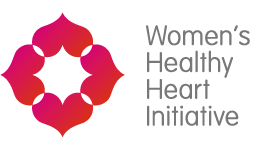With heart health month upon us, we would like to take the time to share some important facts about heart disease, and the preventative measures you should be taking to protect your health.
Unfortunately heart disease is a stealthy—and often silent—killer, largely because many people are unaware of the facts. Currently, more women die from heart disease than breast, cervical and ovarian cancers combined; in fact, it is the leading cause of death for Canadian women. We need to pay attention to the very real threat this disease poses to women. Something needs to be done to fight this disease, and we at the WHHI believe it all starts with knowledge.
As it stands, two thirds of women who die suddenly of heart disease have no previously recognized symptoms. How can this be? Well, there are many reasons, and they all have to do a lack of public awareness. There are still many misconceptions surrounding cardiovascular disease that make it hard for women to know how to manage their own health.
For example, symptoms of heart disease may present differently in women than in men, and as such many women are either unaware of their risk, miss early signs of heart disease, or delay seeking help. Diagnosis of heart disease in women can also be more challenging than in men, and many physicians are not aware of women’s heart disease risk. Also, when it comes to heart-related research studies, women comprise only 25% of the participants. It seems that when it comes to heart disease in women, we still have a long way to go.
But there are many reasons to be positive. Heart month is the perfect time to educate, discuss and raise awareness about this deadly disease and strides are certainly being made. The more people learn about the symptoms of heart disease, the more they can do to combat it. This is because cardiovascular disease is, to a large extent, a lifestyle disease. This means that there are preventative measures all women can take. Conditions like elevated cholesterol, high blood pressure, and diabetes can increase your risk of developing heart disease. The best things you can do to protect your heart are eating well, maintaining a healthy body weight, engaging in regular exercise, and not smoking.
So when it comes to your heart, arm yourself with knowledge and take control of your health. The key is to be proactive.

